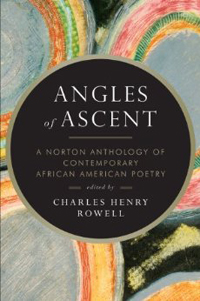Book Notes
 Charles Henry Rowell, editor, Angles of Ascent; A Norton Anthology of Contemporary African American Poetry (New York: W.W. Norton, 2013), 617pp.
Charles Henry Rowell, editor, Angles of Ascent; A Norton Anthology of Contemporary African American Poetry (New York: W.W. Norton, 2013), 617pp.
In 1976 Charles Rowell founded the literary journal Callaloo to give voice to marginalized black writers in the south. The title comes from the word for a Caribbean stew. For the last forty years he's been a sort of talent scout for black writers, making him the perfect scholar to assemble what many are calling the definitive collection of contemporary black poetry to date. In his new anthology, Rowell, professor of American Literature at Texas A&M University, collects 300-plus poems from 86 authors.
In his 25-page introduction, Rowell describes the "conflicting demands" placed upon black poets during the Civil Rights Movement, the Black Power Movement, and the Black Arts Movements. Blacks expected their poets to serve their social and political ideology, while whites controlled university departments, academic journals, and publishing houses. The result was a "divided self." But beginning in the late 1970s, black poets rejected this "prescriptive agenda" and began to write about their own unique experiences. Thus a reversal. "They are the first generation of black writers who, en masse and by example, asserted the right to commit themselves to their art, rather than commit their art to Black America's political, social, and economic struggles."
In an interview on PBS, Rowell observed, "What fascinated me about the contemporary writer is that turn from the external world into the interior world, not the obsession with — quote — 'the struggle,' not that that is not a valid subject, but that has been written about over and over. And these writers were not committing themselves to the struggle. They were committing their poetry to itself, to its craft, to its beauty." Writing with a broader purview broadened both the poetry and the audience. Consequently, most of the poetry of this anthology comes from the post-1970s. It demonstrates the wide variety of voices, content and style in contemporary black poetry.


